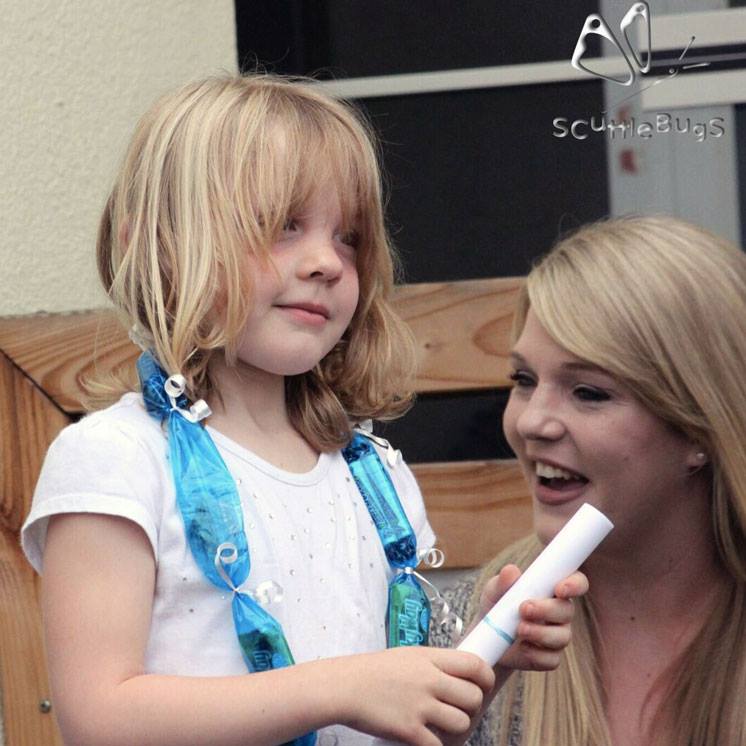The start of Kindergarten is a huge milestone that we are fortunate to be a part of! It is a big celebration here at ScuttleBugs CDC, complete with a graduation ceremony and party. While this is a very exciting time, it can be quite overwhelming and downright confusing. The birthdate is typically the determinant of when a child is able to start school and which program they qualify for. Strictly following birthdates simplifies things quite a bit for schools, but this means a single day can hold a child back from school for an entire year. In California, the cutoff is September 1st, as stated in the Kindergarten Readiness Act. For a couple years after this act was passed in 2010, children born on September 1st through December 2nd (the previous cutoff) were left high and dry until the next fall. To accommodate these children, California created a government-funded Transitional Kindergarten in 2012.

Transitional Kindergarten
So what is Transitional Kindergarten (TK)? TK is a bridge between Preschool and Kindergarten. There is no mandated curriculum, but they follow a modified Kindergarten curriculum to be “age appropriate” (which is a fancy way/politically-correct way of saying easier). Keep in mind, only children who are born on September 1st through December 2nd actually qualify for this government-funded (free) option.
What are the Options?

With all that said, what are your options? There is the public school route, which will take you through a clearly defined route based on birthdate. It is quite hard to deviate from this route in the public school system. It isn’t impossible, as children can start after their 5th birthday on a case-by-case basis, but again, quite hard. You should also consider the school district/zone for public school, as some schools have better reputations than others. Another route is private school. There are lots and lots of different private school options, religious, non-religious, Bi-lingual Immersion, more academic, more play-based, single sex, the list goes on. Some private schools have the same cut-off (9/1), but often times there is more flexibility because they don’t operate under the same requirements. Often-times, these schools will administer assessments and placement tests to determine if your child qualifies. Then, there is homeschooling, in which case, you or their homeschool teacher will determine the pace independently.
One aspect of the PK/TK/K conversation that I haven’t considered until recently is the long-term effects. I thought it didn’t matter all that much especially for typically developing children; they are so adaptable. However, a child that starts school “early” will be the youngest; consequently they are more likely to be the smallest, to develop slowest, hit puberty latest compared to their peers. Vice versa for a child that starts school “late”. Yes, yes, I said the C word, but the fact of the matter is that they will be compared to their classmates. It is more important to me to teach a child that their identity and self-worth does not come from these comparisons than it is to cease all comparisons. I digress. The point is there is no perfect solution, or correct route to take. What I suggest is to do your research, get to know your child, plan ahead, and make the choices that will best set them up for success.
